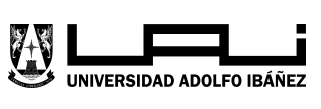In search of Atheism: Benjamin and Nietzsche on secularity and occult theologies
DOI: https://doi.org/10.15691/0718-5448Vol2Iss2a294
Resumen
Referencias
Alter, Robert. 1991. Necessary Angels: Tradition and Modernity in Kafka, Benjamin and Scholem. Cambridge, MA: Harvard University Press.
Aristodemou, Maria. 2014. Law, Psychoanalysis, Society: Taking the Unconscious Seriously. London: Routledge.
Asad, Talal. 2003. Formations of the Secular: Christianity, Islam, Modernity. Stanford: Stanford University Press.
Asad, Talal / Brown, Wendy / Butler, Judith/ Mahmood, Saba. 2013. Is Critique Secular?: Blasphemy, Injury and Free Speech. New York: Fordham Uni-versity Press.
Benjamin, Andrew. 2013. Working with Walter Benjamin. Edinburgh: Edin-burgh University Press.
Benjamin, Walter. 1996. “Franz Kafka: on the Tenth Anniversary of his Death”. In Walter Benjamin: Selected Writings Vol. 2, 1927-1934, editors Michael W. Jennings, Howard Eiland, and Gary Smith. Cambridge, MA: Harvard University Press.
Benjamin, Walter. 1996. “The Meaning of Time in the Moral Universe”. In Walter Benjamin: Selected Writings, Vol 1. 1913-1926, editors Marcus Bullock, Michael W. Jennings. Cambridge, MA: Harvard University Press.
Chabbert, Marie. 2018. “On Becoming Secular: Gilles Deleuze and the Death of God”. Working Papers in the Humanities 12: 50-59.
Cohn, Jesse. 2011. “’Don’t Trust Anybody, Not Even Us’: Kafka’s Realism as Anarchist Modernism”. Studies in 20th and 21st Century Literature 35-2.
Connolly, William. 2002. Neuropolitics: Thinking, Culture, Speed. Minneapolis, MN: University of Minnesota Press.
Connolly, William. 2011. A World of Becoming. Durham, NC: Duke University Press.
Connolly, William. 1999. Why I Am Not a Secularist. Minneapolis, MN: Univer-sity of Minnesota Press.
Connolly, William. 2011. “Some Theses on Secularism”. Cultural Anthropolo-gy 26: 648–56.
Critchley, Simon. 2014. The Faith of the Faithless: Experiments in Political Theology. New York: Verso.
Deleuze, Gilles. 1983. Nietzsche and Philosophy. New York: Columbia Univer-sity Press.
Derrida, Jacques. 1983. “Plato’s Pharmacy”. In Derrida, Jacques. Dissemination. Chicago: University of Chicago Press.
Girard, René. 1988. “The Founding Murder in the Work of Friedrich Nie-tzsche”. In Violence and Truth: On the Work of René Girard, edited and with introduction by Paul Dumouchel. Stanford: Stanford University Press.
Heidegger, Martin. 2002. “Nietzsche’s Word: ‘God is Dead’”. In Heidegger: Off the Beaten Track. New York: Cambridge University Press.
Kafka, Franz. 1998. The Castle. New York: Schocken Books.
Kantorowicz, Ernst. 1957. The Kings Two Bodies: A Study in Mediaeval Politi-cal Theology. Princeton, NJ: Princeton University Press.
Mangabeira Unger, Roberto. 2016. The Religion of the Future. New York: Verso Press.
Mahmood, Saba. 2015. Religious Difference in a Secular Age: A Minority Re-port. Princeton, NJ: Princeton University Press.
Moses, Stéphane. 1999. “Gershom Scholem’s Reading of Kafka: Literary Criti-cism and Kabbalah”. New German Critique 77 (Special Issue on German-Jewish Religious Thought):149-167.
Newman, Saul. Political Theology: A Critical Introduction. Cambridge, UK: Polity Press.
Nietzsche, Friedrich. 1956. The Genealogy of Moral. New York: Doubleday.
Nietzsche, Friedrich. 1969. Thus Spoke Zarathustra. New York: Penguin.
Nietzsche, Friedrich. 1974. The Gay Science. New York: Vintage Book.
Nietzsche, Friedrich. 1993. Ecce Homo: How One Becomes What One Is. New York: Penguin.
Sanín-Restrepo, Ricardo. 2016. Decolonizing Democracy: Power in a Solid State. New York: Rowman & Littlefied.
Scholem, Gershom (editor). 1992. The Correspondence of Walter Benjamin and Gershom Scholem. Cambridge, MA: Harvard University Press.
Watkin, Christopher. 2011. Difficult Atheism: Post-Theological Thinking in Alain Badiou, Jean-Luc Nancy and Quentin Meillassoux. Edinburgh: Edinburgh University Press.
Weber, Max. 1985. The Protestant Ethic and the Spirit of Capitalism. London: Allen and Unwin.
Enlaces refback
- No hay ningún enlace refback.
Copyright (c) 2020 James Martel

Este obra está bajo una licencia de Creative Commons Reconocimiento-CompartirIgual 4.0 Internacional.



